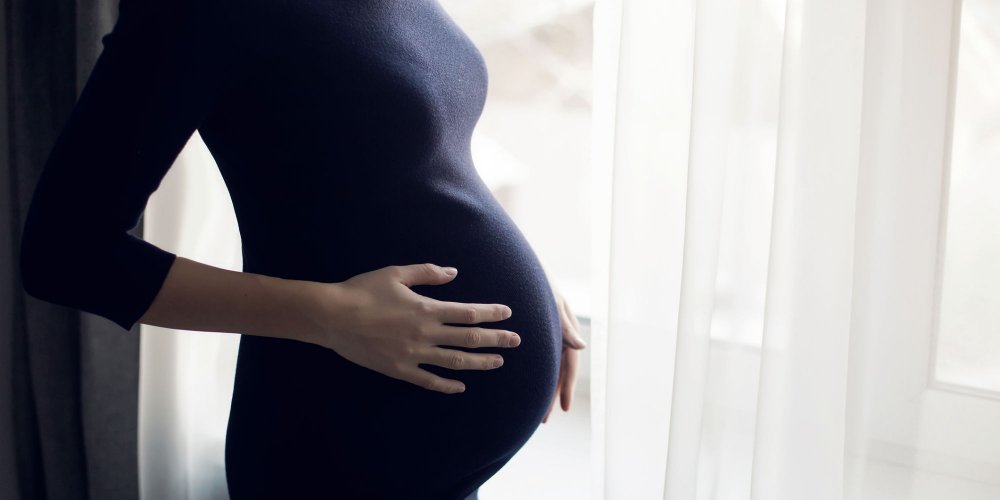"I lost the water just five hours after I started swallowing my first antivirals," recalls Célia. In 2015, she is 29 years old and is preparing to become a mother after having jostled all her bearings.
"I lived in Mexico. I met my daughter's father there. We had a great time together but he had to leave again. His life was in France. When I learned about my pregnancy, I decided to join him. "
After leaving home, work and friends, Célia arrives in France. We are in November, it's cold and with the unborn baby's father, things are not going as planned. The couple separates .
At the time, the young woman is 6 and a half months pregnant. Followed by a gynecologist in Mexico, she then goes in search of a French doctor to prepare for her delivery.
"AIDS did not touch my mind for one second"
"I was a little lost," she breathes. "I had just arrived in a country that I did not know, there was this disappointment in love ... A friend who lives in the 93 proposed to host me. She made me an appointment at Beaujon Hospital. "
There, Célia meets the medical team, takes stock of her pregnancy. He is given an ultrasound. A blood test-the first in 7 months and a half is also done. It is explained to him that it will not delay to receive the results, a new appointment is fixed a few days later.
Madam, there is a problem. I need to refer you to another doctor
"I remember that day very well," says Célia. "It was the 5th of January. The midwife opened my file and said, 'Madam, there is a problem. I have to refer you to another doctor. At this moment, Célia is far from suspecting the diagnosis.
"I immediately thought there was a problem with the baby but not necessarily with me. AIDS did not touch my mind for one second. "
"My first concern was if my baby was contaminated"
Until the moment of announcement. "I was made to sit down, four doctors were present. That's where I was told that I was HIV positive. I collapsed! Everything then goes very fast. Assisted by a psychologist, she was prescribed treatment and transferred to emergency hospital Louis Mourier (Hauts de Seine) where a team of specialists awaits.
"Stressed", Célia finally gives birth to her daughter in the night following this very long day. "My first concern was if my baby was contaminated. The doctors gave her a lot of tests and finally told me she was not carrying the disease. From there, the child is monitored every month by a pediatrician and Célia starts a triple therapy.
The "Big Sisters": support and solidarity for women
Connected by the hospital with the Family Committee - an association supported by Sidaction - as part of the Big Sisters project, Célia, at the time "depressed" is supported by * Nadine, a mother also HIV positive . "This support has been really important to me," she says.
"Between the disease to manage and my newly born daughter, I struggled to climb the slope. Nadine called me every day, to get news, to discuss the baby, to give me his advice. She too had been there, she understood everything. "
Between the disease to manage and my newly born daughter, I struggled to climb the slope
Winner of the AP-HP patient trophy in 2015, the "Big Sisters" project, initiated by the Family Committee since 2007 and in partnership with Louis Mourier, Delafontaine, Kremlin-Bicêtre, Tenon and Argenteuil hospitals, has indeed, it aims to provide individual support to young mothers with HIV by putting them in contact with other HIV-positive mothers.
These last nicknamed "big sisters" thus bring to them "living proof" that it is possible to take care of oneself, to raise one's children, to know the love and to have a life of happy couple in spite of the illness ", comments Assita Maiga, responsible for organizing project activities.
Learn how to manage HIV daily
In concrete terms, "if the patient agrees, the caregiver sends us her phone number. We then choose a Big Sister according to her availability, requests from the patient, such as the origin - it facilitates the exchanges another language that French is spoken -, the place of residence etc.
After the patient's agreement, she becomes 'little sister', "explains Assita Maiga, adding:" The big sisters sign a charter that commits them to absolute confidentiality. "
Today "in a stable state" (note: its viral load is undetectable), Celia has gone from several drugs to take every day to a single tablet. " I feel much better. For me, everyday life is about the same as before illness, "she says.
The big sisters sign a charter that commits them to confidentiality
In addition, she regularly goes to meals, round tables, debates and other moments of meetings between patients and caregivers organized by the Family Committee. "With them, I learned to live my HIV status daily, to put in place precautions to deal with the mother-daughter transmission for example. It's a bit like a second family. "
Now more serene, Célia even feels ready to become a Great Sister. "I still have things to learn but I want to get involved in the project. The disease continues to spread, there are and there will be more women in need after me.
It will be my way of fighting. To "lead by example" and fight against exclusion.
* The first names have been changed


